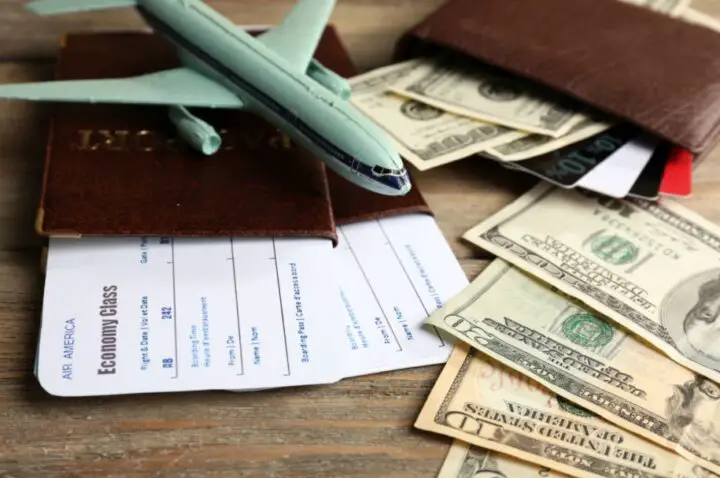
A family vacation is something exciting just to think about. If you’re in the midst of planning the trip of your dreams, there could be just one thing standing in your way—the cost. There are a lot of things you can do to plan a budget-friendly trip.
For example, using a discount vacation site that offers package deals is a good starting point, such as bransonshows.com. Beyond that, below, we’ll offer some budgeting tips and also some ideas for paying for a vacation.
Creating a Budget

First, as was mentioned, it’s crucial to have a budget if you’re planning a trip. A few things to consider as you start to build a budget:
Plan your budget before your destination, and then you can work backward from there. There are going to be some places that might end up being out of your budget, even if you’d shortlisted them, so once you put a concrete budget in place, you can cut those out and make things simpler.
You’re going to need a budget for the more obvious parts of your trip, like where you’ll stay and your transportation to get there. You’ll also need to figure out the extras. For example, are you going to have to pay to board a pet while you’re gone?
Will you need to rent a car or pay for public transportation? Are you going to need particular travel documents to go between destinations if you’re going to a foreign country? These expenses all need to be built into your travel budget.
How much will you eat out? Will you have access to a kitchen? What about the activities you want to do on your trip, like tickets to museums or events? If you’re going to a foreign country, you will have to think about currency exchange fees, which can hugely impact your budget.
The airport tends to be the worst place to exchange money and you’ll spend more, so find somewhere to do it at home before you leave if you can. Put some room into your budget for those things you might splurge on. Maybe it’s a hotel room upgrade or your shopping budget. However, be aware that once you do have some splurge options in your budget, you will need to be realistic in other areas.
Just to give you an idea, even though the numbers can vary wildly, a domestic trip for four nights on average per person is around $581, based on research compiled by Value Penguin. The same research shows that if you were to plan a 12-night international trip, it might cost around $3,250. For most travelers, the most considerable expense is airline tickets, so if you’re not flying to your destination, you might be able to spend more in other places.
Pay Upfront When You Can

Once you have a budget and you start to make your reservations, try to find things that you can pay for ahead of time as much as possible. Of course, at the same time, you want to make sure that you either get travel insurance or that there’s a flexible cancellation policy.
Paying upfront is good because you can stay more in control of your spending, and you’ll know what you have left in that budget to spend once you’re actually on the trip. If many things are paid for upfront, it can also make your travels more enjoyable because you don’t have to worry about how much you’re spending while you’re there, at least not as much.
Tips to Save Money
After you have a good idea of your budget and you’ve started to make some plans, there are ways you can save money. We mentioned one above, which is booking package deals when you can. You should also be flexible on things like your travel dates and locations.
For example, you might find a great deal in a smaller airport somewhere close to your original destination, so you can take advantage of that. When it comes to booking flights, the more in advance you book them, typically the less you’re going to pay.
If you’re going on an international trip, booking up to 10 months out will mean you often get the best deals. Hotels are the opposite. You don’t want to book that too soon. You can usually find the best deals on a hotel if you wait until you’re about a month out from your anticipated travel time.
Paying for a Vacation

There are a lot of ways to pay for a vacation. A simple, financially smart option is to set aside a savings account that’s strictly for travel. You don’t plan or pay for anything unless you have enough in that account to cover it.
If you’re going to save and then ultimately pay cash for your vacation, open up a dedicated bank account so you can keep the funds separate from everything else. A high-yield savings account will give you little extra earnings along the way.
You might set up automatic payments that will go into that account, and then anytime you feel the urge to splurge on something you don’t need, maybe you put that money into the savings account instead. Make sure you have a goal that you’re working toward, as in a specific amount you want to have in the account.
If you’re going to finance your trip, consider something like a no-interest credit card. It’s okay to finance a trip, but you need to be mindful of how you’ll pay it back, and you should have a plan in place before you do.
If you have a credit card, check to see if there are any travel-specific perks that you could use.
For example, you might be able to apply points to your flight or hotel booking, or there might be travel insurance included with your card. If you get a new reward card, many have sign-up bonuses if you spend a certain amount within the first few months of opening the account, so you might be able to use those points to shave off some of the cash you need for your trip.
